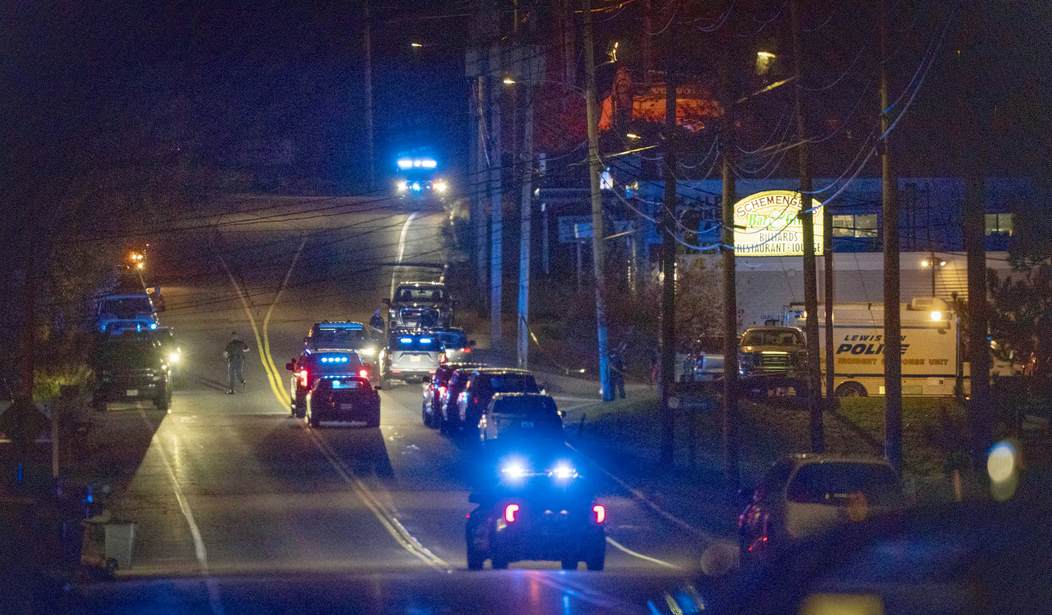On Wednesday night, there was a mass shooting in Lewiston, Maine, that has left at least 22 people dead, and many more injured at various locations. The suspect in the shooting, Robert Card, remains at large, and a manhunt is underway. According to reports, the suspect went to multiple locations, including a bar and a bowling alley.
Naturally, Democrats were quick to jump in with calls for more gun control. But make no mistake about it, this incident doesn’t prove the need for more gun control at all. It actually proves that existing gun control measures aren’t being enforced. How so? Well, according to information released to the public so far, we know that the suspect has severe mental health problems and was previously known to law enforcement.
According to a Maine law enforcement bulletin, Card “recently reported mental health issues including hearing voices and threats to shoot up the National Guard base in Saco.” Card was also reported to have been committed to a mental health facility for two weeks this past summer.
I pulled the screenshot before Facebook nuked his account
The profile picture matches the picture distributed by the Maine Info & Analysis center pic.twitter.com/xoF4S2IDm9
— John Hasson (@SonofHas) October 26, 2023
Let that sink in for a moment. Here’s a man with mental health problems who threatened to shoot up a base. Can anyone explain why he was a free man in the first place, let alone still in possession of firearms?
As Tom Knighton at our sister site Bearing Arms notes, “Maine has their own version of a red flag law. This is the kind of stuff we’re told red flag laws are for, and yet it doesn’t seem anyone bothered to use it.”
It’s inevitable that Joe Biden will deliver remarks at some point about the shooting, and it’s a safe bet he’ll blame the NRA and congressional Republicans—his favorite scapegoats for gun violence. But the NRA has consistently called upon the federal government to tackle the issue of mental illness and violence. In 1966, the NRA stated, “The time is at hand to seek means by which society can identify, treat and temporarily isolate such individuals,” because “elimination of the instrument by which these crimes are committed cannot arrest the ravages of a psychotic murderer.”
Related: Hamas Attack on Israel Is a Lesson on the Dangers of Gun Control
As Cam Edwards of Bearing Arms notes, if the suspect “was involuntarily committed to a mental health facility, that would have precluded him from legally purchasing or possessing a firearm. A voluntary commitment, on the other hand, wouldn’t necessarily have resulted in a NICS denial after he was released.” However, if Card “did self-report mental health issues including a threat to shoot up an army base and was committed to a mental health facility, that likely would have been seen as ‘clear and convincing evidence’ that he presented a danger to himself or others.”
When existing mechanisms to keep guns away from the mentally ill aren’t used, that’s not a reason for more gun control that won’t actually solve the problem.










Join the conversation as a VIP Member